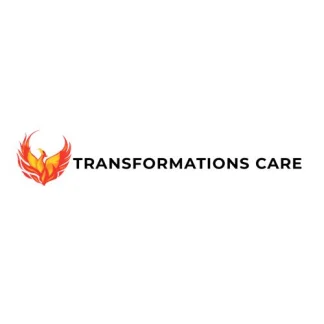Safety Consultant Services
Safety Consultant Services offers outpatient treatment for individuals with alco...
Transformations Care offers community-based addiction and mental health treatment for individuals in Gardena, California. They also provide valuable community resources, such as referrals, and family support services.
Transformations Care’s treatment begins with a mental health assessment to screen for symptoms of addiction or co-occurring mental health disorders. Other services include the following:
Adults attend individual and group treatment sessions for improved coping skills, peer support, and recovery support. Sessions are held 3-4 days a week.
The withdrawal management program allows individuals to safely and comfortably detox from drugs and alcohol, after which residents are referred to an inpatient rehab or outpatient treatment program.
Inpatient treatment utilizes evidence-based practices to treat substance abuse and co-occurring mental health conditions for adults ages 18 and up. Visions accepts private insurance that has out-of-network benefits. They are also in-network with plans, like HealthNet MHN, and accept self-pay. You’ll want to check with your provider in order to verify specific coverage details, including your out-of-network benefits.
Contact us for more information: (424) 407-4922

Connect with Transformations Care by calling their admissions team directly.
(424) 407-4922 Website Get DirectionsThe Joint Commission, formerly known as JCAHO, is a nonprofit organization that accredits rehab organizations and programs. Founded in 1951, the Joint Commision's mission is to improve the quality of patient care and demonstrating the quality of patient care.
Joint Commission Accreditation: Yes
LegitScript has reviewed Transformations Care as part of their certification program, and has determined that it meets the LegitScript standards for legality, safety and transparency.
LegitScript verified in October 2021
Research clearly demonstrates that recovery is far more successful and sustainable when loved ones like family members participate in rehab and substance abuse treatment. Genetic factors may be at play when it comes to drug and alcohol addiction, as well as mental health issues. Family dynamics often play a critical role in addiction triggers, and if properly educated, family members can be a strong source of support when it comes to rehabilitation.
Group therapy is any therapeutic work that happens in a group (not one-on-one). There are a number of different group therapy modalities, including support groups, experiential therapy, psycho-education, and more. Group therapy involves treatment as well as processing interaction between group members.
In individual therapy, a patient meets one-on-one with a trained psychologist or counselor. Therapy is a pivotal part of effective substance abuse treatment, as it often covers root causes of addiction, including challenges faced by the patient in their social, family, and work/school life.
Group therapy is any therapeutic work that happens in a group (not one-on-one). There are a number of different group therapy modalities, including support groups, experiential therapy, psycho-education, and more. Group therapy involves treatment as well as processing interaction between group members.
In individual therapy, a patient meets one-on-one with a trained psychologist or counselor. Therapy is a pivotal part of effective substance abuse treatment, as it often covers root causes of addiction, including challenges faced by the patient in their social, family, and work/school life.
In individual therapy, a patient meets one-on-one with a trained psychologist or counselor. Therapy is a pivotal part of effective substance abuse treatment, as it often covers root causes of addiction, including challenges faced by the patient in their social, family, and work/school life.
Safety Consultant Services offers outpatient treatment for individuals with alco...
San Martin Counseling Center is a drug rehab facility in Lawndale, California th...
Gratitude Retreat Foundation is a non-profit rehab located in Torrance, Californ...
Harbor UCLA Medical Center is a public rehab located in Torrance, California. Ha...